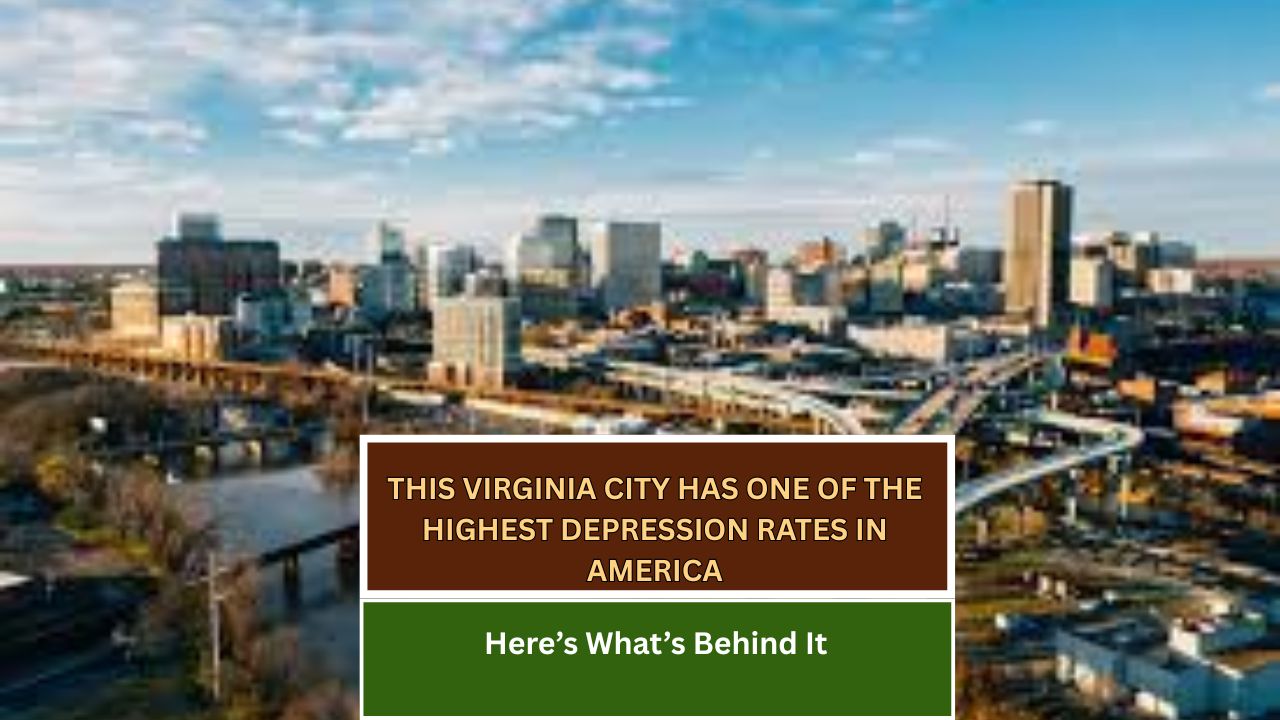Bristol, Virginia—a quiet city nestled along the Tennessee border—has become the unlikely center of a startling public health statistic. According to recent data, the Kingsport-Bristol metro area, which includes Bristol, VA, now ranks among the most depressed places in the United States, with more than 30.6% of adults diagnosed with depression by a healthcare provider.
This rate is among the highest in the nation, significantly surpassing the national average and highlighting serious mental health challenges in this Appalachian region.
Understanding the Data
The alarming figure comes from a comprehensive report by CEUFast, which aggregated data from sources such as the Centers for Disease Control and Prevention (CDC) and other government health databases. The study focuses on clinical diagnoses of depression, rather than self-reported mental health struggles, adding gravity to the results.
In comparison:
- Virginia Beach has a depression rate of 19.0% among Medicare beneficiaries (source).
- Falls Church reports 18.0%, and many other Virginia localities average around or below 20% (Live Healthy Fairfax).
These comparisons underscore just how disproportionate Bristol’s mental health struggle has become.
Why Bristol?
There’s no single explanation for why Bristol tops the charts, but public health officials and researchers point to several contributing factors:
- Economic hardship: Like many towns in Southwest Virginia, Bristol has struggled with job loss, especially in manufacturing and coal-related industries.
- Limited access to care: Rural communities like Bristol often face shortages in mental health professionals, making it harder for residents to receive timely support.
- Isolation and stigma: In smaller communities, stigma around mental illness may discourage people from seeking help, exacerbating the problem.
“Depression thrives where people feel stuck, economically or socially,” said one behavioral health expert affiliated with the Virginia Department of Behavioral Health and Developmental Services (DBHDS). “And in parts of Southwest Virginia, that feeling is real.”
A Broader Mental Health Emergency
Mental illness is a growing concern across the U.S., but the numbers in Bristol reflect a deeper crisis in rural America. Nationally, around 20% of U.S. adults experience mental illness each year, according to the National Institute of Mental Health (NIMH). However, access to treatment is often uneven.
The Health Resources and Services Administration (HRSA) designates large parts of Virginia as Mental Health Professional Shortage Areas (MHPSAs) (HRSA Map). Bristol falls squarely within this underserved classification.
What’s Being Done?
Local officials, healthcare providers, and nonprofits are working to address the growing need for mental health care in the area:
- Highlands Community Services, based in Abingdon, offers outpatient mental health programs to serve Bristol residents.
- The Virginia Mental Health Access Program (VMAP) is expanding support to pediatricians to help them screen and treat youth with mental health issues (VMAP site).
- New investments through state and federal grants are helping fund telehealth options and mobile crisis teams in underserved areas like Southwest Virginia.
Still, experts caution that much more needs to be done.
What Can Residents Do?
If you or someone you know is struggling with depression in Virginia, here are key resources:
- Virginia DBHDS Crisis Line: 1-866-400-6428
- SAMHSA’s National Helpline: 1-800-662-HELP (4357)
- 988 Suicide & Crisis Lifeline: Just dial 988
More local support resources can be found via MentalHealth.Virginia.gov.
The Road Ahead
Bristol’s mental health crisis is a reflection of broader systemic issues: poverty, underinvestment, and healthcare inequality. But it’s also a call to action—for policymakers, healthcare providers, and communities alike—to address mental health with urgency and compassion.
As more light is shed on the extent of depression in Virginia’s towns and cities, the hope is that awareness will lead to action, and that no resident, in Bristol or beyond, will have to struggle alone.
This article has been carefully fact-checked by our editorial team to ensure accuracy and eliminate any misleading information. We are committed to maintaining the highest standards of integrity in our content.

Outside of work, he enjoys playing chess, following cricket, and writing short stories. His commitment to integrity and in-depth analysis strengthens OTE News’ mission of providing trustworthy journalism.




